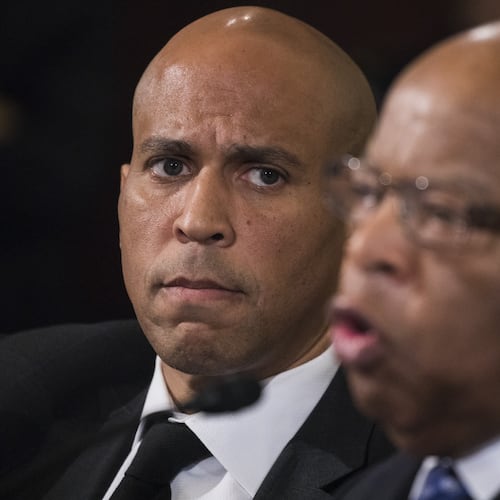Let’s turn back the clock for a moment to April 1977. That’s when I started my first “grown-up job” at the Community Foundation for Greater Atlanta.
And now, 42 years later, I’m honored to still be working there, as its president. Back then, I was a starry-eyed Emory graduate who had many doors opened for me because of that position. Maybe I was bold, or just too naïve to realize the weight of it.
But looking back, I had access to many of Atlanta’s power players, both business and civic leaders. Often, I was the only woman in the room who wasn’t someone’s secretary. And to be frank, it was mostly a room of white men – that was the power structure at the time.
I was privileged to be at the table for some pivotal moments in our region’s history. I was there when a coalition came together to formulate Atlanta’s early response to the growing HIV/AIDS crisis in the early ’80s.
And I was at the table when, through the leadership of then-Mayor Shirley Franklin, a team came together with a plan to purchase the Martin Luther King papers, securing them as a piece of history to remain here in his hometown forever.
These are examples of how diverse groups came together to solve a big challenge. But most problem-solving in our region wasn’t collaborative. It has been concentrated among a small set of power players that was one-dimensional, and mostly white.
Our region has changed, that’s for sure. But the seat of power hasn’t. All too often, it still doesn’t reflect the diversity of our region.
Over the years, through the work of the Community Foundation, I’ve worked with others to change that picture. But it will take the concerted actions of all the region’s leadership to truly bring change. And change it, we must.
If we don’t wake up and address the significant challenges our region faces, we’re not going to live up to the promise we continue to tell ourselves is our reality.
So, what’s our path forward?
First – we have to face the tough issues. Secondly, decision making has to change.
We have all the ingredients to be the land of opportunity where people come to pursue the American Dream. But the reality is, we are falling short for too many of our fellow residents.
More than one quarter of families in metro Atlanta do not have $400 on hand in case of an emergency. And about one in three households pay more than 30 percent of their income on housing, making it difficult to afford food, clothing, transportation or medical care.
Data point after data point proves this disparity. It’s time to do something about it.
The other issue we must address is race. We may tell ourselves we’re the city too busy to hate, but we are more divided than we are united along racial lines. The tentacles of race branch out to many pressing issues – education, employment, health outcomes and housing.
Let’s look at just one example – education. Data from our regional education collaborative, Learn4Life, shows that white and Asian students consistently outperform their black and Hispanic peers on every measure, from third grade reading to completing the first year of college.
We have to deal with this. Period, end of discussion.
To change the tide, the way we make decisions has to change.
We have to be truly inclusive, and we must be regional in scope. Decisions can’t be made just inside the perimeter, or just outside of the perimeter. We have to be forward-thinking, or we won’t move forward.
The future is not one voice, one language, one race, one faith or one gender. We don’t all look the same, and the center of power should look like all of us, not just some of us.
How do we become more inclusive of all voices, races and perspectives?
People like to talk about “The Atlanta Way,” this nostalgic idea that we’re somehow special, that there’s no such thing as racial lines or gender barriers in the way we work.
Sadly, that hasn’t always been true in my experience. While the Atlanta Way may have worked for some, it worked only marginally for others, if at all.
It’s time for a new Atlanta Way, one that lives up to Rev. Martin Luther King Jr.’s beloved community promise that we all deserve, a promise all our neighbors deserve, not just a privileged few.
Let every one of us find a way to reject indifference and make a difference in our community and our region. Because we must be better than that. We are all better than that.
Alicia Philipp is president of The Community Foundation for Greater Atlanta.
About the Author
Keep Reading
The Latest
Featured


